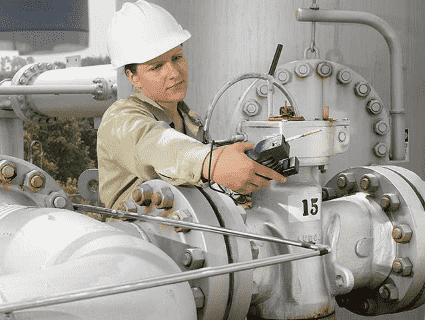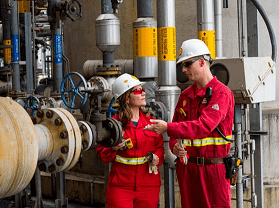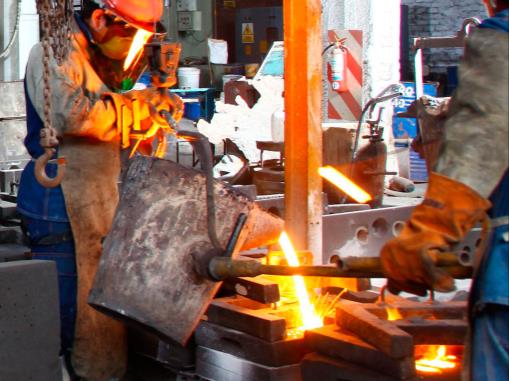COURSE OVERVIEW
FE0070 : ASME B31.3 Process Piping Design, Construction, Maintenance & Mechanical Integrity

OVERVIEW
| COURSE TITLE | : | FE0070 : ASME B31.3 Process Piping Design, Construction, Maintenance & Mechanical Integrity |
| COURSE DATE | : | Oct 05 - Oct 09 2025 |
| DURATION | : | 5 Days |
| INSTRUCTOR | : | Mr. Steve Magalios |
| VENUE | : | Kuwait City, Kuwait |
| COURSE FEE | : | $ 5500 |
Course Description
This practical and highly-interactive course includes various practical sessions and exercises. Theory learnt will be applied using our state-of-the-art simulators.
The course provides comprehensive coverage of the ASME B31.3, Process Piping Code requirements. It has been completely revised, reorganized and updated, and includes descriptions of important new requirements in the latest edition of ASME B31.3, including the philosophy behind the changes.
The course will review the basic requirements of the ASME B31 Code for Pressure Piping with emphasis on B31.3, Process Piping. General topics in the course include: Code organization and intent, pressure design, design for sustained loads including support design, flexibility analysis, equipment loads, expansion joints, supports and restraints, materials, fabrication, examination, testing, and, for existing piping systems: mechanical integrity. Applications of these concepts, including simple hand analysis methods and computer-based analysis methods using CAESAR II, will be demonstrated. Examples of the required analysis and sources of further information will be provided. Inspection and maintenance (mechanical integrity) of existing piping systems will also be covered, as provided in API 570, piping Inspection Code.
The course covers design, fabrication, examination and testing requirements of ASME B31.3. It covers Code requirements from design through start-up of new piping systems, as well as standards for inspection and repair of piping systems that have been in service, as provided in API 570, Piping Inspection Code.
This course provides a working knowledge of the Code, how it is organized, its intent, the basis for requirements, including both design and construction (fabrication, erection and testing) aspects. It provides a foundation of knowledge necessary for those responsible for assuring the mechanical integrity of existing piping systems, as well as those responsible for designing and constructing new piping systems.
Upon the successful completion of this course, the participant will gain an understanding of the physical phenomena which affect the design of piping systems: the ASME Code formulas and other methods by which these phenomena can be analyzed to determine resulting stresses, evaluation of those stresses relative to ASME Code limitations, the methods by which piping systems are fabricated, inspected and tested.
Each session will be conducted in a lecture/discussion format designed to provide intensive instruction and guidance on understanding Code requirements, and also on developing an awareness of other considerations in the design, analysis, fabrication and installation of piping which is not covered by the Codes. There will also be a demonstration of computer software that can be used to assist in piping analysis. The faculty will be available following each day’s session to provide participants with further opportunity for discussion and consideration of specific problems.
Participants should bring calculators for working sample problems. Participants may wish to bring a copy of ASME B31.3 if they have a copy available, but the course is designed such that it is not necessary for the students to have copies of the Code for reference.
link to course overview PDF
TRAINING METHODOLOGY
This interactive training course includes the following training methodologies:
LecturesPractical Workshops & Work Presentations
Hands-on Practical Exercises & Case Studies
Simulators (Hardware & Software) & Videos
In an unlikely event, the course instructor may modify the above training methodology for technical reasons.
VIRTUAL TRAINING (IF APPLICABLE)
If this course is delivered online as a Virtual Training, the following limitations will be applicable:
| Certificates | : | Only soft copy certificates will be issued |
| Training Materials | : | Only soft copy materials will be issued |
| Training Methodology | : | 80% theory, 20% practical |
| Training Program | : | 4 hours per day, from 09:30 to 13:30 |
This course is no longer available.
Please check below for other scheduled dates.
OTHER SCHEDULED DATES
| Refrence | Date | Location | Instructor | Fee (USD) | Outline | Actions |
|---|---|---|---|---|---|---|
| FE0070 | Jan 04 - Jan 08 2026 (5 Days) | Istanbul, Turkey | Mr. Steve Magalios | $ 6,000 | Outline | |
| FE0070 | Feb 02 - Feb 05 2026 (4 Days) | Abu Dhabi, UAE | Mr. Den Bazley | $ 4,500 | Outline | |
| FE0070 | Feb 08 - Feb 12 2026 (5 Days) | Dubai, UAE | Mr. Steve Magalios | $ 5,500 | Outline | |
| FE0070 | May 18 - May 22 2026 (5 Days) | Abu Dhabi, UAE | Mr. Steve Magalios | $ 5,500 | N/A | |
| FE0070 | Jun 07 - Jun 11 2026 (5 Days) | Doha, Qatar | Mr. Den Bazley | $ 6,000 | Outline | |
| FE0070 | Jul 05 - Jul 09 2026 (5 Days) | Dubai, UAE | Mr. Steve Magalios | $ 5,500 | Outline | |
| FE0070 | Sep 06 - Sep 10 2026 (5 Days) | Al Khobar, KSA | Mr. Den Bazley | $ 5,500 | Outline | |
| FE0070 | Oct 18 - Oct 22 2026 (5 Days) | Cairo, Egypt | Mr. Den Bazley | $ 5,500 | N/A | |
| FE0070 | Dec 20 - Dec 24 2026 (5 Days) | Dubai, UAE | Mr. Den Bazley | $ 5,500 | Outline | |
| FE0070 | Dec 27 - Dec 31 2026 (5 Days) | Al Khobar, KSA | Mr. Steve Magalios | $ 5,500 | Outline | |
| FE0070 | Jan 03 - Jan 07 2027 (5 Days) | Cairo, Egypt | Mr. Den Bazley | $ 5,500 | N/A | |
| FE0070 | Feb 07 - Feb 11 2027 (5 Days) | Doha, Qatar | Mr. Den Bazley | $ 6,000 | N/A | |
| FE0070 | Mar 14 - Mar 18 2027 (5 Days) | Dubai, UAE | Mr. Den Bazley | $ 5,500 | N/A | |
| FE0070 | Mar 28 - Apr 01 2027 (5 Days) | Dubai, UAE | Mr. Steve Magalios | $ 5,500 | N/A |
RELATED COURSES

FE0570 : API 579-1/ASME FFS-1: Fitness-for-Service (FFS) of Process Plant Equipment, Pressure Vessels, Piping & Storage Facilities
- Date: Mar 29 - Apr 02 / 3 Days
- Location: Al Khobar, KSA
- Course Details Register

FE1021 : Materials and Testing Foundation
- Date: Mar 29 - Apr 02 / 3 Days
- Location: Istanbul, Turkey
- Course Details Register

FE0985 : Thermal Infrared Testing Level-I Training & Certification (SNT-TC-1A)
- Date: Mar 14 - Mar 18 / 3 Days
- Location: Cairo, Egypt
- Course Details Register

FE0928 : Metallurgy for Non Metallurgist
- Date: Mar 29 - Apr 02 / 3 Days
- Location: Doha, Qatar
- Course Details Register
